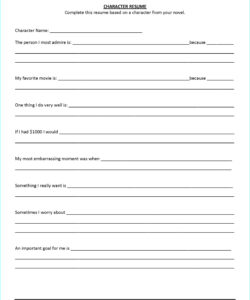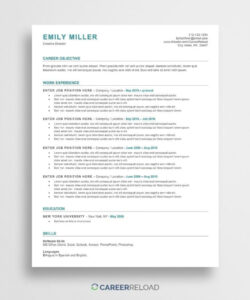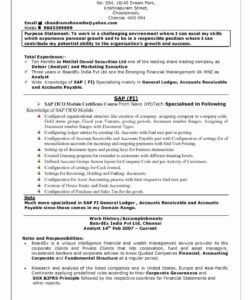Studying abroad is an excellent way to gain new experiences, learn new skills, and broaden your horizons. However, it can be challenging to know how to put study abroad on a resume. In this article, we will provide you with some tips and tricks to help you showcase your study abroad experience in the best possible light.
Why Study Abroad is Important for Your Resume
Studying abroad is an excellent way to gain new experiences, learn new skills, and broaden your horizons. It shows that you are willing to take risks, step outside your comfort zone, and embrace new cultures and ways of thinking. These are all qualities that employers value highly, and they can help you stand out from other candidates.
Studying abroad also demonstrates that you have a global perspective and are comfortable working with people from different backgrounds. This is becoming increasingly important in today’s globalized world, where many companies have operations in multiple countries and need employees who can work effectively across cultures.
Finally, studying abroad can help you develop a range of transferable skills that are highly valued by employers. These include communication, problem-solving, adaptability, and resilience. By studying abroad, you will have had to navigate new environments, overcome language barriers, and adapt to new ways of learning. These experiences can help you develop these skills and demonstrate them to potential employers.
How to Include Study Abroad on Your Resume
When it comes to including study abroad on your resume, there are a few different approaches you can take. Here are some tips to help you get started:
1. Create a Separate Section
If you have a lot of study abroad experience, you may want to create a separate section on your resume to highlight it. This can be a great way to draw attention to your international experience and make it stand out. You can include details such as the name of the program, the location, the dates, and any relevant coursework or projects you completed.
2. Incorporate it into Your Education Section
If you don’t have a lot of study abroad experience, you can incorporate it into your education section. Simply list the name of the program, the location, and the dates alongside your other educational qualifications. You can also include any relevant coursework or projects you completed.
3. Highlight Transferable Skills
When describing your study abroad experience, be sure to highlight any transferable skills you developed. For example, if you worked on a group project with students from different countries, you could highlight your teamwork and cross-cultural communication skills. If you had to navigate a new city or country on your own, you could highlight your problem-solving and adaptability skills.
4. Use Action Verbs
When describing your study abroad experience, use action verbs to make your descriptions more engaging and dynamic. For example, instead of saying “I studied abroad in Spain,” you could say “I immersed myself in Spanish culture and language by studying abroad in Madrid.”
Conclusion
Studying abroad is an excellent way to gain new experiences, learn new skills, and broaden your horizons. By following the tips and tricks outlined in this article, you can showcase your study abroad experience in the best possible light and make it stand out to potential employers.
FAQ
Q: How do I list study abroad on my resume?
A: You can list study abroad on your resume by creating a separate section or incorporating it into your education section. Be sure to highlight any transferable skills you developed and use action verbs to make your descriptions more engaging.
Q: What should I include in my study abroad section?
A: In your study abroad section, you should include the name of the program, the location, the dates, and any relevant coursework or projects you completed. You can also highlight any transferable skills you developed.
Q: How do I describe my study abroad experience?
A: When describing your study abroad experience, be sure to highlight any transferable skills you developed and use action verbs to make your descriptions more engaging. For example, instead of saying “I studied abroad in Spain,” you could say “I immersed myself in Spanish culture and language by studying abroad in Madrid.”


